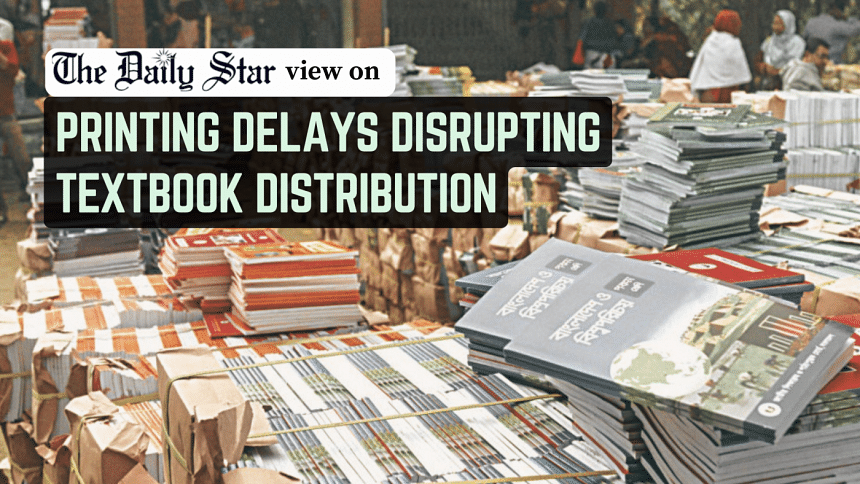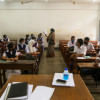Ensure prompt delivery of textbooks

With the new academic year all set to begin, it is disappointing that the National Curriculum and Textbook Board (NCTB) has not yet completed printing a significant number of textbooks for primary and secondary levels, including schools and madrasas. According to Prothom Alo, out of more than 40 crore books, only about 4.75 crore have been approved for dispatch at the upazila level as of December 28. Since not all students across the country will receive their books on the first day of the new year, the NCTB plans to initially distribute at least three new books—Bangla, English, and Mathematics—to students of all classes, but even this plan reportedly faces uncertainty.
The NCTB chairman has expressed hope that students of different grades will receive their books in phases, with full distribution completed by January 20. However, NCTB and printing sources are sceptical of meeting this deadline due to delays in printing books for grades 4 to 9. A report by this daily previously cited printing industry insiders who had suggested that delivering all textbooks might take until the first week of March. In recent years, such delays have become an unfortunate norm, severely disrupting education, particularly in remote areas.
While it must be acknowledged that the interim government has had to deal with significant challenges complicating its preparation and delivery of textbooks—including unrest caused by the political changeover as well as school/madrasa shutdown during floods—ensuring textbook delivery within the first week of January could signal a return to normalcy in academic activities. This is especially crucial for the students whose learning took a heavy hit because of the disruptions. Even now, the education sector, including the tertiary level, continues to experience challenges and uncertainties, making the new year an ideal opportunity to rejuvenate academic momentum and support students, particularly in underserved areas outside Dhaka. The faster the textbooks are distributed, the better for all concerned.
Under the circumstances, the government must step up its efforts in printing and distributing the textbooks. If necessary, additional resources and staff should be allocated to accomplish this crucial task. Given the wave of interruptions the education system has faced ever since the pandemic, it is all the more important to get things firmly back on track. Ensuring that schoolchildren receive their books promptly can lay the foundation for a strong academic year ahead.


 For all latest news, follow The Daily Star's Google News channel.
For all latest news, follow The Daily Star's Google News channel. 










Comments